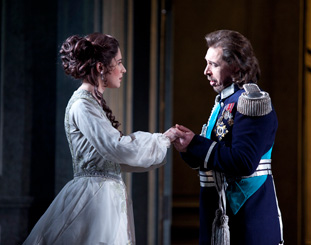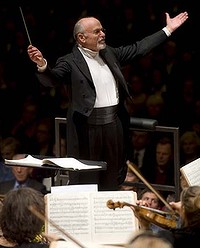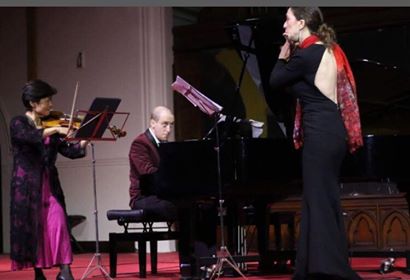Concert Review: Plucky genius – Avi Avital with The Australian Brandenburg Orchestra

It is a constant matter of wonderment to me when I see grown men and women musicians performing on instruments that seem hardly big enough to convey their virtuosity. Yet, the musician turns the instrument into a giant of expression and mandolin player Avi Avital’s opening concert with the Australian Brandenburg Orchestra was a night when the mandolin roared.
Still, the mandolin has a delicate sound and the orchestra, a nationwide ensemble of 14 musicians performing on period instruments, including the rarely heard lirone, directed by Paul Dyer AO performed with sensitivity.
Avital’s performance was dazzling. His programme included works originally written for the violin, which because of similar tuning, are easily adapted for the mandolin. Vivaldi’s Concerto in D major RV 93, JS Bach’s Concerto in A minor BWV 1041, and the Sonata in E minor BWV 1034, originally for flute, were delivered in dashing Baroque style. In the slow movements, especially the Vivaldi, Avital achieved an aching beauty, the notes lingering in the air like crystals.
A delicate balance was required between the solo mandolin, a plucked instrument which has less resonance and sustaining power than the bowed instruments which accompanied it. The ensemble did not disappoint, retreating to the barest hint of continuo support that allowed the poetry of Avital’s playing to emerge, a practice that extended to the more richly textured passages when the mandolin’s sounds shone through the orchestra like rays of light through a wooded glen.
The double stringed (4 pairs of steel strings, 8 pegs) mandolin is played with a plectrum, the wrist moving both up and down and as the generous programme notes explain, “the player rapidly plucks each of the pairs of strings to maintain the sound.” Avital’s agile ornamentation and generally brisk tempi also ensured that the instrument had its say and maintained the energy.
From the Baroque to two very different more modern works, the Danse Espagnol of Falla and Bartok’s Romanian Folk Dance. The instrument which only moments previously had conveyed the highly stylised brightness of the Baroque was now delivering the sultry rubatos of Iberian music and the much more guttural and unrestrained joy of Bartok’s folk dances with utter conviction. It demonstrated Avital’s supreme mastery and intimate understanding of this diminutive instrument.
Never the wallflowers, the musicians of the Brandenburg gave a spirited and refreshing performance of Pachelbel’s Canon and in the second half of the programme, Albinoni’s Sonata a cinque Opus 2 no 3 in C major, a work not dissimilar to Pachelbel’s canon in its descending chord passages.
Avital obliged with two encores, the first a Bulgarian folk dance in 15/16 time, during whose climax, his strumming was so rapid, his hand became a blur.
Poetic yet electrifying, Avital’s performance is not to be missed.
Shamistha de Soysa for SoundslikeSydney©
Avi Avital performs with the Australian Brandenburg Orchestra at Sydney’s City Recital on selected dates till May 16th. Click here for more concert information and here for our review of his Australian tour double CD release.
SoundLikeSydney takes no fee for reviews published on this website.







